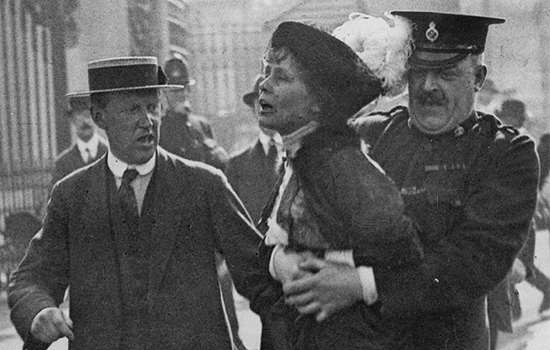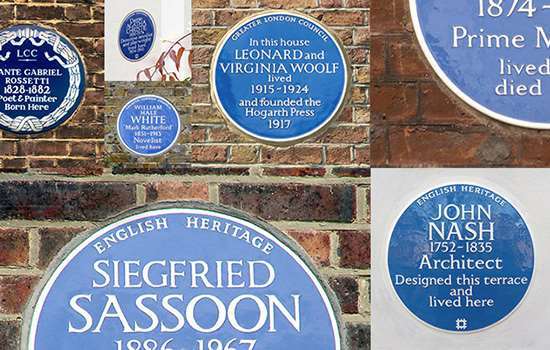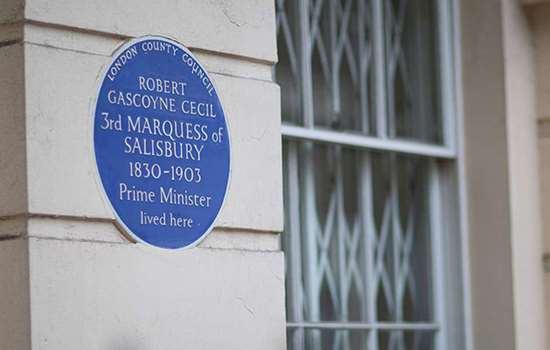MENDELSSOHN, Felix (1809-1847)
Plaque erected in 2013 by English Heritage at 4 Hobart Place, Belgravia, London, SW1W 0HU, City of Westminster
All images © English Heritage
Profession
Composer
Category
Music and Dance, Overseas Visitors
Inscription
FELIX MENDELSSOHN 1809-1847 Composer stayed here
Material
Ceramic
Felix Mendelssohn was a German composer of the early Romantic period. In his short life, he became internationally famous and was particularly loved by the English. He in turn loved England and London in particular, staying at 4 Hobart Place in Belgravia many times.
YOUNG TALENT
Jacob Ludwig Felix Mendelssohn was born in Hamburg. His precocious musical talent first emerged at university in Berlin, where he was also a successful linguist, painter and draughtsman. One of his earliest compositions, and perhaps now the most well known, was Overture to A Midsummer Night's Dream – completed in 1826 when he was just 17. He went on to enjoy great success, becoming music director in Düsseldorf from 1833 to 1835, conductor of the Gewandhaus orchestra in Leipzig from 1835 and Kapellmeister to the King of Prussia in Berlin from 1841.
BRITISH TOURS
When Mendelssohn first visited Britain in 1829 his talent and personal charm saw him fêted in musical circles and beyond. He was made an honorary member of the Philharmonic Society and in 1824 he conducted this ensemble from the piano using a white baton, a great novelty at the time.
He visited England ten times, fitting in a tour to Scotland that inspired the celebrated Die Hebriden overture of 1830. Mendelssohn loved visiting Britain but was less impressed with the musical standards he found. Of a performance of Handel’s Messiah, he wrote ‘every note spoke loudly that an Englishman played it, and did not care overmuch about it’. He is credited with having been a strong influence on the improvement of English musical life, and for inspiring English composers such as William Sterndale Bennett and Julius Benedict. He was also a great promoter of the works of Bach, Handel and Schubert.
‘THAT SMOKY NEST’
On his many visits to London, Mendelssohn stayed at 4 Hobart Place in Belgravia, the home of the Hanoverian embassy secretary, Karl Klingemann. The building forms part of a three-storey terrace, built in the 1830s, and is now grade II listed.
In total he spent four months at this house over four or five separate stays, during which he conducted the Philharmonic Society on numerous occasions and gave many organ recitals. It was from number 4 that he left to dine with Isambard Kingdom Brunel, which he did not enjoy, and Charles Dickens, which he very much did. And it was to this address that he rushed back to give an account of his audience with Queen Victoria and Prince Albert in 1842. The Queen herself was also moved to write about the encounter: ‘Really I have never heard anything so beautiful,’ she wrote in her diary. ‘Poor Mendelssohn was quite exhausted when he had done playing.’
Mendelssohn loved London. His first impression of the city was ambivalent, describing it in 1829 as ‘the grandest and most complicated monster on the face of earth’. But writing about London later, he said:
[there is] no question that that smoky nest is my preferred city and will remain so. I feel quite emotional when I think of it.
At his death in 1847 he was widely regarded as Europe’s greatest composer. An obituary in The Times asserted he ‘loved England as heartily as his own home’.


